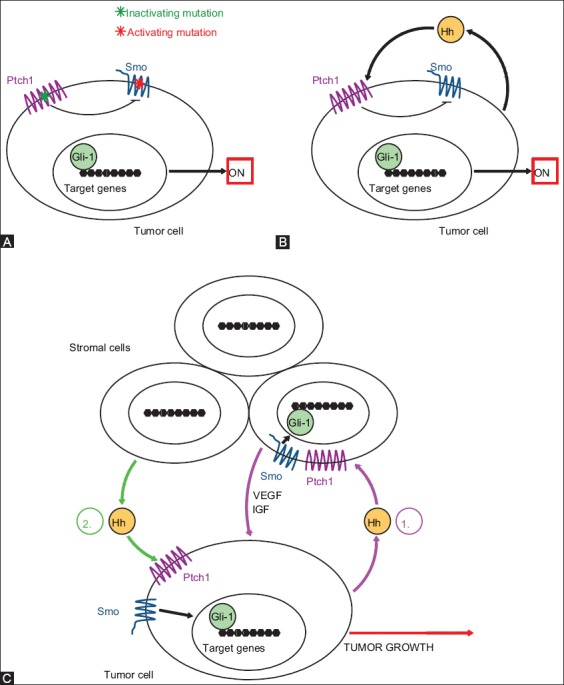FIGURE 2.

Three basic mechanisms of aberrant activation of Hedgehog signaling. (A) Type I - Ligand-independent Hedgehog signaling. This type includes: Ptch1 inactivating mutation (green asterisk) or Smo activating mutation (red asterisk), thereby Smoothened receptor can no longer be inhibited by Patched 1. The result is a constitutive activation of Hedgehog pathway in the absence of the ligand. (B) Type II - Ligand-dependent autocrine/juxtacrine Hedgehog signaling. The Hedgehog ligand is secreted by the tumor cell and taken up into the same tumor cell (autocrine manner) or into the nearby tumor cells (juxtacrine manner), thus activating the signal cascade downstream of the Hedgehog signaling pathway. (C-1) Type IIIa - Ligand-dependent paracrine signaling. The Hedgehog ligand is secreted by tumor cells and taken up by the stromal cells. Activated stromal cells synthesize and secrete signals, such as vascular endothelial growth factor and insulin-like growth factor, which are then taken back into the tumor cells to support their survival and growth. (C-2) Type IIIb - Ligand-dependent reverse paracrine signaling. The Hedgehog ligand is directly secreted by stromal cells and taken up by the tumor cells. Thus, the ligand helps the tumor cell proliferation and growth. Hh - Hedgehog; Ptch1 - Patched 1; Smo - Smoothened; Gli1 - glioma-associated oncogene 1; VEGF - vascular endothelial growth factor; IGF - insulin-like growth factor.
